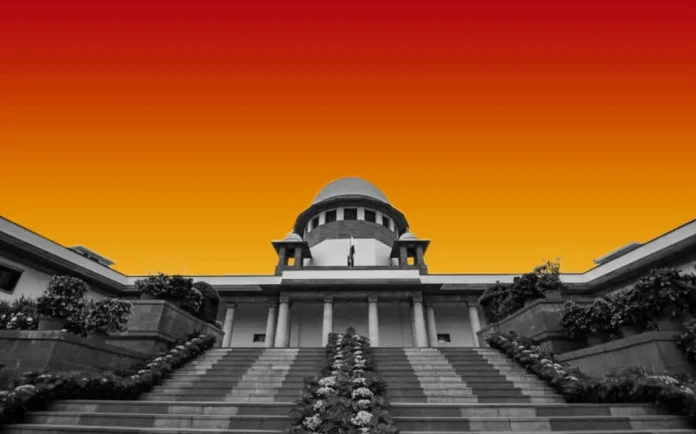Supreme Court allows States to tax industrial alcohol for coming under purview of intoxicating liquor in Constitution
Industrial alcohol comes within purview of intoxicating liquor, can be taxed by States: Supreme Court
The Supreme Court on Wednesday ruled that the States had the power to regulate and tax ‘industrial alcohol,’ since it came within the meaning of ‘intoxicating liquor’ under Entry 8 of List II (State List) of the Constitution.
The judgment was delivered by the nine-judge Constitution Bench of Chief Justice of India DY Chandrachud, Justice Hrishikesh Roy, Justice Abhay S Oka, Justice BV Nagarathna, Justice JB Pardiwala, Justice Manoj Misra, Justice Ujjal Bhuyan, Justice Satish Chandra Sharma and Justice Augustine George Masih.
The majority on the Bench ruled that the meaning of intoxicating liquor under Entry 8 of the State List was beyond the narrow definition of alcoholic beverages or potable alcohol and included all kinds of alcohol that could adversely affect public health.
The Bench observed that alcoholic liquor and intoxicating liquor were used for consumption but the entry of intoxicating liquor stretched to its manufacturing etc.
An alcoholic liquor was defined by the ingredient and ‘intoxicating’ was defined by effect. Thus, alcoholic liquor could be covered by the latter if it caused intoxication. The public interest purpose was evident from the construct and evolution of the entry, it added.
The Apex Court dealt with the question whether the States could regulate industrial alcohol/denatured spirits by way of Entry 8, which conferred powers on the State to deal with intoxicating liquors.
Noting that Entry 52 of the Union List empowered the Central government to regulate those industries declared by Parliament to be of public interest, the Bench observed that there could be an overlap between the two entries and the way out was to reconcile the two entries to see that neither were rendered redundant.
Stating that legislative lists must be given a wide interpretation, the Apex Court held that intoxicating liquor under Entry 8 could not be restricted to potable alcohol.
The Bench further overruled a 1990 judgment in Synthetics & Chemicals Limited vs State of Uttar Pradesh, which held that intoxicating liquor referred only to potable alcohol and that the States could not tax industrial alcohol.
The Bench today ruled that the meaning of the phrase intoxicating liquor included all kinds of alcohol, which could be used to harm public health and not just potable alcohol.
It said Entry 8 of List II could not be used to exclude raw materials that went into the production of intoxicating liquor.
Justice Nagarathna delivered a separate dissenting judgment in the matter.
In October 2007, the Supreme Court in State of UP v Lalta Prasad Vaish noted that the 1990 decision in the Synthetic & Chemicals case had ignored a 1956 five-judge Bench decision in Ch Tika Ramji vs State of Uttar Pradesh.
On December 8, 2010, the matter was referred to a nine-judge Constitution Bench.
The States argued during the hearing that the power to tax industrial alcohol was vital in the post-GST indirect tax regime and to monitor public health.
the Union of India was represented by Solicitor General Tushar Mehta and Advocate Kanu Agrawal.


